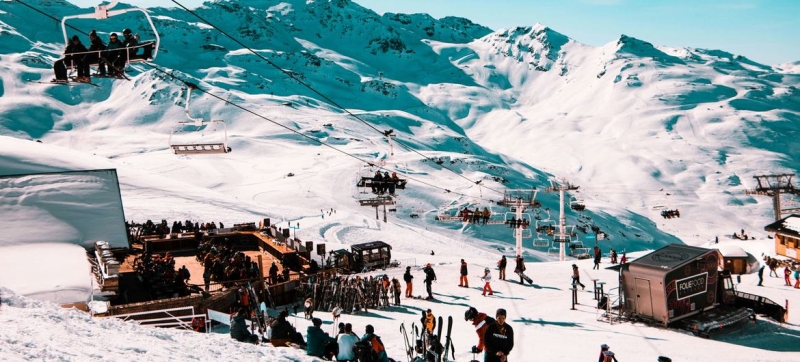
With global warming of two degrees Celsius, 53 percent of winter resorts will be at high risk of losing their natural snow cover. Winter sports and tourism face ‘existential crisis’ Climate and environment
The International Ski and Snowboard Federation (FIS) and the World Meteorological Organization (WMO) have launched a campaign to raise awareness that winter sports and winter tourism are at risk of ‘extinction’ due to climate change.
The memorandum of understanding between FIS and WMO commits the two organizations to work together to raise awareness of the impacts of rising global temperatures on snow and ice cover, and to develop tools to promote dialogue on this issue in the sports and scientific communities. This is the first time that WMO, as a specialized agency of the United Nations, has collaborated with an international sports federation.
“Ruined winter holidays and cancelled sports matches are just the tip of the iceberg for climate change,” warned WMO Secretary-General Celeste Saulo. “Retreating glaciers, shrinking snow and ice cover and melting permafrost are having serious impacts on people, mountain ecosystems and economies.”
Climate and snow
A 2023 study by French and Austrian scientists published in the journal Nature Climate Change, which focused on ski resorts in 28 European countries, found that 53 percent of these resorts were at risk of losing their natural snow cover at a rate of two degrees Celsius of global warming. If the average air temperature rises by four percent, 98 percent of resorts will suffer.
According to a study conducted in Switzerland, Alpine glaciers have lost about 60 percent of their volume since 1850. Since 1970, the number of days with snowfall below 800 meters has halved.
Fifty years ago, zero degrees was about 600 meters above sea level. Now, when winters have become warmer, this level is about 850 meters. According to Swiss climate change scenarios, without mitigation, zero degrees will rise by another 400 to 650 meters by 2060.
“A fateful crossroads”
“Of course, the climate crisis is much more than just a problem for tourism and sport: it is a fateful crossroads for all of humanity,” says FIS President Johan Eliasch. “However, we must understand that climate change is an existential threat to skiing and snowboarding.”
In the 2023-2024 season, FIS will organize 616 World Cup races on 166 slopes. Twenty-six of these events were cancelled due to weather-related reasons.
Implementation of the agreement
The FIS-WMO agreement comes into force ahead of the upcoming winter season and is for an initial period of five years with the possibility of automatic renewal. Each year, the two sides will define a list of initiatives, the first of which are already planned. For example, on November 7, the partnership will host a webinar on climate change and its potential impact on winter sports.
